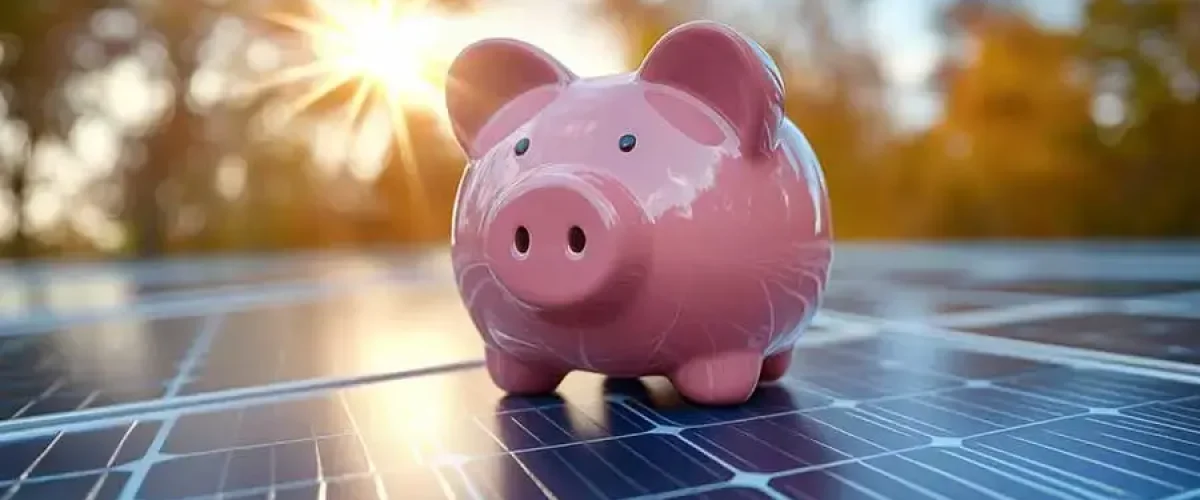You might have heard about the federal solar tax credit, also referred to as the Investment Tax Credit (ITC), if you are thinking of putting solar panels on your home. This incentive has played a very important role in reducing the cost of solar energy to homeowners. But, legislation has recently changed the schedule of this credit. In this blog, we will talk about when the solar tax credit is expiring, its implication to you, and how you can claim it before it expires.
What Is the Solar Tax Credit?
The federal solar tax credit enables the homeowner to deduct a certain percentage of the installation cost of a solar energy system in their federal taxes. This has been a great incentive to go solar. The credit can be used on the price of solar panels as well as the installation.
When Is the Solar Tax Credit Ending?
On July 4, 2025, President Trump passed the One Big Beautiful Bill (OBBB) into law, which has major effects on clean energy incentives. With this new law, the federal solar tax credit to homeowners will be phased out by December 31, 2025. It is a radical shift in the earlier plans which had stretched the credit till 2032.
Residential Solar Tax Credit (Section 25D): The 30 percent credit to homeowners will expire on December 31, 2025. Your solar panel system should be installed and working by this date to qualify.
Solar Tax Credit for Leased Systems (Section 48E): Leased systems did not qualify to receive the credit in the past. The OBBB now permits leased systems to be eligible for the credit provided the system is put in service before 2028.
Why Is the Solar Tax Credit Ending?
The move to terminate the solar tax credit was a bigger initiative to cut down federal expenditure on clean energy incentives. The advocates of the change state that it is time to eliminate the subsidies of the renewable energy sources and encourage a more market-based energy environment. Nevertheless, the opponents argue that such a step might slow down the use of clean energy technologies and lead to higher electricity prices in the long run.
What Does This Mean for Homeowners?
If you are thinking about installing solar panels, you have to act as soon as possible. Your system should be installed and in use before December 31, 2025, to enjoy the 30 percent federal tax credit. The credit will not be applicable to residential solar installation after this date.
Installation Timeline: The installation process of solar can last a few weeks, depending on the permitting process, weather, and the complexity of the system. The process should be initiated as early as possible so that your system can be running before the deadline.
Financial Considerations: The upfront cost of a solar panel system can be greatly lowered via 30% tax credit. In the absence of this incentive, the price of going solar will go up, which may render it less economically viable.
How to Take Advantage of the Solar Tax Credit
The following steps are to help you qualify for the solar tax credit:
Talk to a Solar Installer: Contact a well-known solar installation company to determine how suitable your house is to install solar panels, and obtain a quote.
Acquire Needed Permits: Consult with your installer to acquire any permits needed by the local authority.
Timetable: Schedule the installation time so that the system is up and running by December 31, 2025.
File for the Tax Credit: You will need to use IRS Form 5695 when you file your federal taxes to claim the Residential Clean Energy Credit.
Are There Other Incentives Available?
Although the federal solar tax credit is phasing out, there are states and local governments that have their own incentives to install solar. These may involve rebates, tax credits, and net metering plans. Look into what kind of incentives you can find in your region that can assist you in covering the cost of going solar.
The federal solar tax credit has proved to be a good incentive to homeowners interested in investing in solar energy. Since it expires on December 31, 2025, you should not waste time to get this advantage. Through knowing the timeline and requirements, you will be able to make a decision on whether you should install solar energy in your home or not.
When you are willing to go solar, contact a local solar installer to talk about your requirements and begin the process before the deadline.


